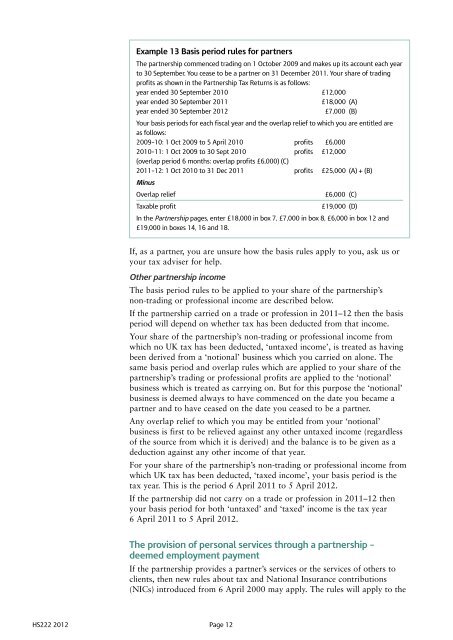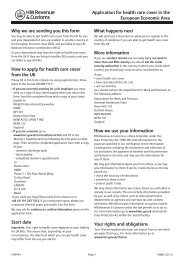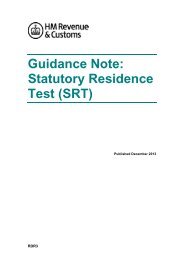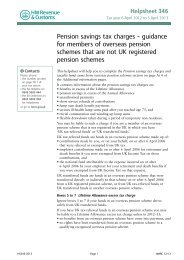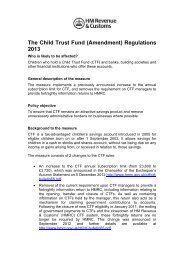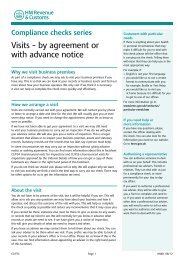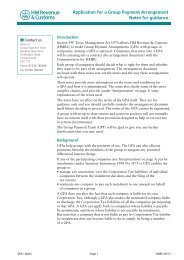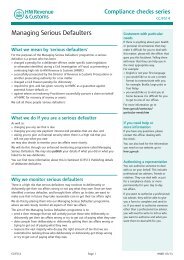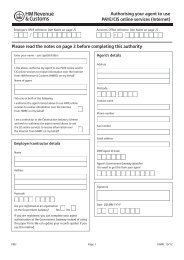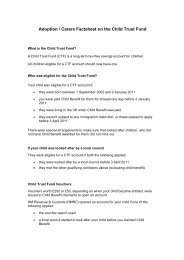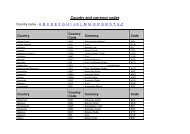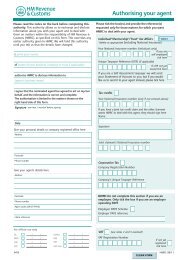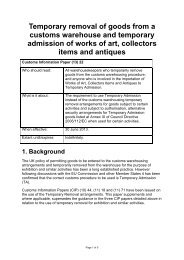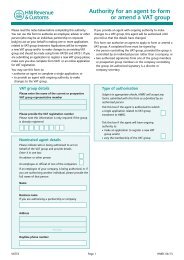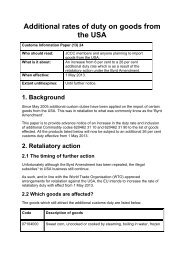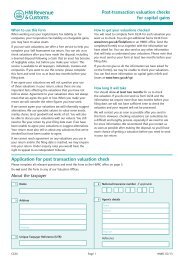Helpsheet 222
Helpsheet 222
Helpsheet 222
Create successful ePaper yourself
Turn your PDF publications into a flip-book with our unique Google optimized e-Paper software.
Example 13 Basis period rules for partners<br />
The partnership commenced trading on 1 October 2009 and makes up its account each year<br />
to 30 September. You cease to be a partner on 31 December 2011. Your share of trading<br />
profits as shown in the Partnership Tax Returns is as follows:<br />
year ended 30 September 2010 £12,000<br />
year ended 30 September 2011 £18,000 (A)<br />
year ended 30 September 2012 £7,000 (B)<br />
Your basis periods for each fiscal year and the overlap relief to which you are entitled are<br />
as follows:<br />
2009–10: 1 Oct 2009 to 5 April 2010 profits £6,000<br />
2010–11: 1 Oct 2009 to 30 Sept 2010<br />
(overlap period 6 months: overlap profits £6,000) (C)<br />
profits £12,000<br />
2011–12: 1 Oct 2010 to 31 Dec 2011<br />
Minus<br />
profits £25,000 (A) + (B)<br />
Overlap relief £6,000 (C)<br />
Taxable profit £19,000 (D)<br />
In the Partnership pages, enter £18,000 in box 7, £7,000 in box 8, £6,000 in box 12 and<br />
£19,000 in boxes 14, 16 and 18.<br />
If, as a partner, you are unsure how the basis rules apply to you, ask us or<br />
your tax adviser for help.<br />
Other partnership income<br />
The basis period rules to be applied to your share of the partnership’s<br />
non-trading or professional income are described below.<br />
If the partnership carried on a trade or profession in 2011–12 then the basis<br />
period will depend on whether tax has been deducted from that income.<br />
Your share of the partnership’s non-trading or professional income from<br />
which no UK tax has been deducted, ‘untaxed income’, is treated as having<br />
been derived from a ‘notional’ business which you carried on alone. The<br />
same basis period and overlap rules which are applied to your share of the<br />
partnership’s trading or professional profits are applied to the ‘notional’<br />
business which is treated as carrying on. But for this purpose the ‘notional’<br />
business is deemed always to have commenced on the date you became a<br />
partner and to have ceased on the date you ceased to be a partner.<br />
Any overlap relief to which you may be entitled from your ‘notional’<br />
business is first to be relieved against any other untaxed income (regardless<br />
of the source from which it is derived) and the balance is to be given as a<br />
deduction against any other income of that year.<br />
For your share of the partnership’s non-trading or professional income from<br />
which UK tax has been deducted, ‘taxed income’, your basis period is the<br />
tax year. This is the period 6 April 2011 to 5 April 2012.<br />
If the partnership did not carry on a trade or profession in 2011–12 then<br />
your basis period for both ‘untaxed’ and ‘taxed’ income is the tax year<br />
6 April 2011 to 5 April 2012.<br />
The provision of personal services through a partnership –<br />
deemed employment payment<br />
If the partnership provides a partner’s services or the services of others to<br />
clients, then new rules about tax and National Insurance contributions<br />
(NICs) introduced from 6 April 2000 may apply. The rules will apply to the<br />
HS<strong>222</strong> 2012 Page 12


